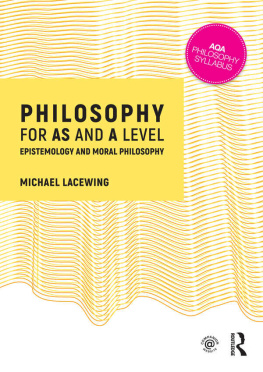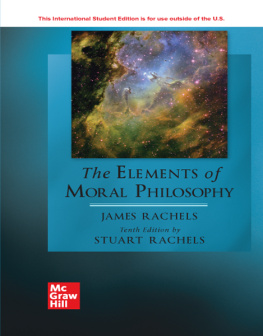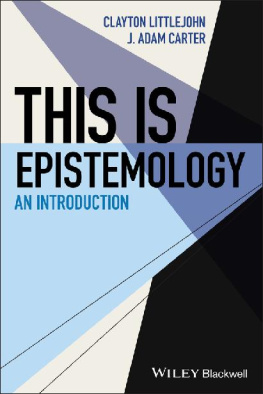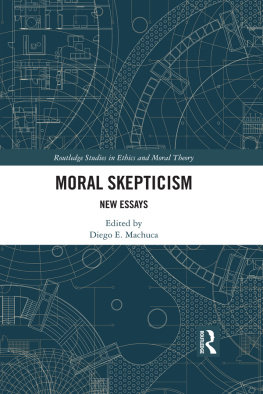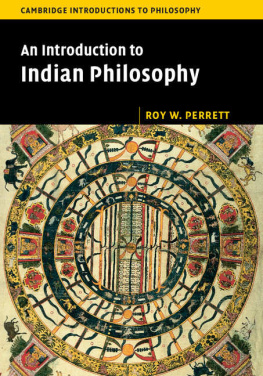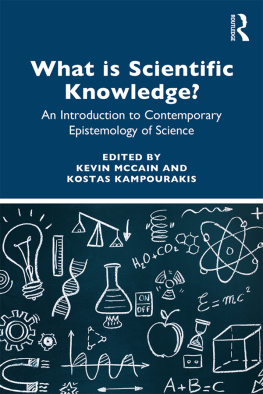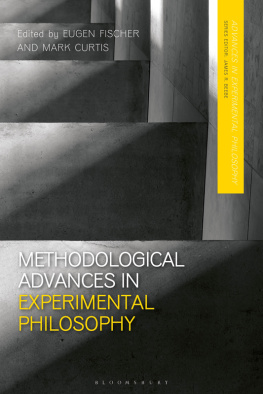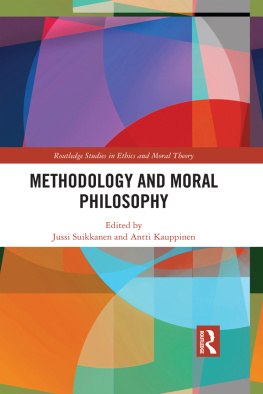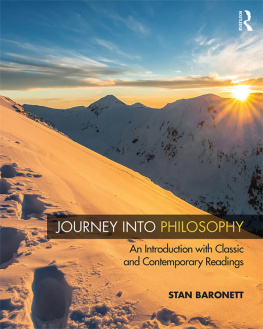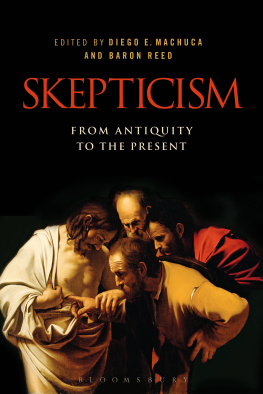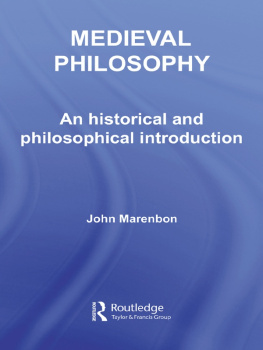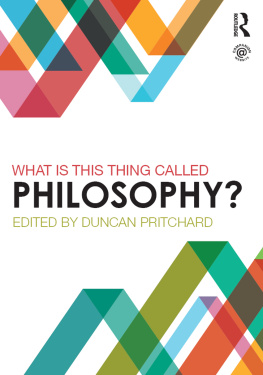Philosophy for AS and A Level
Philosophy for ASand A Level is an accessible textbook for the new 2017 AQA Philosophy syllabus. Structured closely around the AQA specification this textbook covers the two units shared by the AS and A Level, Epistemology and Moral Philosophy, in an engaging and student-friendly way. With chapters on How to do philosophy, exam preparation providing students with the philosophical skills they need to succeed, and an extensive glossary to support understanding, this book is ideal for students studying philosophy.
Each chapter includes:
- argument maps that help to develop students analytical and critical skills
- comprehension questions to test understanding
- discussion questions to generate evaluative argument
- explanation of and commentary on the AQA set texts
- Thinking harder sections
- cross-references to help students make connections
- bullet-point summaries of each topic.
The companion website hosts a wealth of further resources, including PowerPoint slides, flashcards, further reading, weblinks and handouts, all structured to accompany the textbook. It can be found at www.routledge.com/cw/alevelphilosophy.
Michael Lacewing is a teacher of philosophy and theology at Christs Hospital school, and a former Reader in Philosophy and Vice-Principal Academic at Heythrop College, University of London. He is founder of the company A Level Philosophy (www.alevelphilosophy.co.uk), and advises the British Philosophical Association on matters related to philosophy in schools.
Philosophy for AS and A Level
Epistemology and Moral Philosophy
Michael Lacewing
First published 2017
by Routledge
2 Park Square, Milton Park, Abingdon, Oxon OX14 4RN
and by Routledge
711 Third Avenue, New York, NY 10017
Routledge is an imprint of the Taylor & Francis Group, an informa business
2017 Michael Lacewing
The right of Michael Lacewing to be identified as author of this work has been asserted by him in accordance with sections 77 and 78 of the Copyright, Designs and Patents Act 1988.
All rights reserved. No part of this book may be reprinted or reproduced or utilised in any form or by any electronic, mechanical, or other means, now known or hereafter invented, including photocopying and recording, or in any information storage or retrieval system, without permission in writing from the publishers.
Trademark notice: Product or corporate names may be trademarks or registered trademarks, and are used only for identification and explanation without intent to infringe.
British Library Cataloguing-in-Publication Data
A catalogue record for this book is available from the British Library
Library of Congress Cataloging-in-Publication Data
Names: Lacewing, Michael, 1971- author.
Title: Philosophy for AS and A level : epistemology and moral philosophy / Michael Lacewing.
Description: New York : Routledge, 2017. | Includes index.
Identifiers: LCCN 2016057926 | ISBN 9781138690394 (pbk. : alk. paper)
Subjects: LCSH: Knowledge, Theory of--Textbooks. | Ethics--Textbooks.
Classification: LCC BD161 .L26 2017 | DDC 121.076--dc23
LC record available at https://lccn.loc.gov/2016057926
ISBN: 978-1-138-69039-4 (pbk)
ISBN: 978-1-315-17186-9 (ebk)
Typeset in Frutiger
by Saxon Graphics Ltd, Derby
Visit the companion website: www.routledge.com/cw/alevelphilosophy
Contents
List of illustrations
(with Joanne Lovesey)
Guide
Argument maps
Table

Christ's Hospital is an independent co-educational boarding and day school for boys and girls aged 1118 with 870 pupils. It is unique for a UK independent boarding school in that it educates a proportion of its pupils for free, and many at a reduced rate. This stems from its founding charter as a charitable school. It was established in 1552 by King Edward VI to care for poor and homeless children of the City of London, and the generosity of donors has built up an endowment that enables Christ's Hospital to maintain its charitable tradition. School fees are paid on a means-tested basis, with substantial subsidies paid by the school, so that pupils from a wide range of social and cultural backgrounds are able to have a high quality, independent boarding school education.
The school, set in 1,200 acres of rolling Sussex countryside, has an impressive history of high academic achievement with an average of 12% of pupils each year taking up places at Oxford or Cambridge, and 98% of leavers going on to top Universities in the UK and abroad. Offering a choice of A levels, Pre-U, and International Baccalaureate (IB) courses, it provides a healthy, stimulating and comfortable environment in which pupils learn to be independent, making the most of their abilities, whether in academia, sports, music or fine arts. The pupils grow up with a strong sense of responsibility towards each other, the school and the world around them.
The AQA A Level and AS Level Philosophy courses aim to introduce you, as a student, to some key concepts and methods in philosophy, studied as an academic discipline. The AS level raises two big philosophical questions: What, and how, do we know? and What is morally right and good? The A level covers these two questions and adds two more: Does God exist? and What is the mind? They both introduce you to philosophy by considering some of the very best attempts to answer these questions, the arguments of some of the very best philosophers in history as well as recent discussions. In this textbook, we look at the first two issues, which the AS and A level share. In an accompanying textbook for A level only, we look at the issues of God and the mind.
One aim of this textbook is, of course, to cover the ideas and arguments that are on the syllabus. But it aims at more than that. First, it aims to show you how to do philosophy not just to tell you, but to show you, what philosophical thinking and philosophical writing is like. This is important because the AS level and A levels aim to introduce the methods of philosophy, as well as the ideas. Second, it aims to get you engaging in the argument. The discussion is provocative and leaves many lines of thought hanging. So, for instance, you might come up with new objections or replies that haven't yet been discussed, or argue that a particular point is convincing or implausible. That's the idea. This textbook doesn't try to tell you what should be said, only (some of) what could be said. (That leads to one important difference between this book and your essays. The book tries to be even-handed, and doesn't often draw firm conclusions. In your essays, you'll be expected to defend a particular point of view.)
If you haven't done any philosophy before, you'll soon find that it involves reading and thinking in ways that can be quite different from how you normally read and think. In is intended as a resource to which you can return again and again, as and when you need to.
Each paragraph of is intended to be taken as a thought to be considered, reread, and reflected on. Philosophy needs to be read slowly, and more than once, to be understood . You will probably find, in addition, that you are not able to completely understand a particular theory until you also understand rival theories that oppose it. And so, at the end of each major section (e.g. Perception as a source of knowledge), you may feel that you need to return to earlier discussions in that section, to think about them again in the light of what you learned later.

